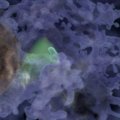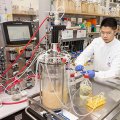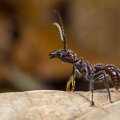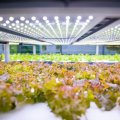A school oval in Vanuatu was transformed into a makeshift dental clinic during a recent visit by a volunteer team from The University of Queensland.
UQ staff Leah Hobbs and Gloria Silcock were joined by final year Bachelor of Oral Health students Ariel (Chieh-Ju) Shih and Megan Cable and Queensland Health dental therapist Christine Southall on the island of Malekula from June 26–July 2.
More than 80% of people in Vanuatu live in rural villages and access to healthcare is limited. Vanuatu recorded just six dentists, six therapists and zero hygienists in a study published in the International Dental Journal last year. The dentist / population ratio sits at a staggering 1:34,812, while the comparable figure for Australia is 1:1,910.
“It was daunting, but very exciting at the same time,” Ms Hobbs said.
“We knew there were very long waiting lists of patients in desperate need of dental care.”
The volunteers were met In Malekula by Dr Julie Tevi, a dentist from Vanuatu Health, based in Espiritu Santo. Dr Tevi accompanied the group to school and hospital visits, providing translation where necessary.
The team brought 80kgs of donated equipment from Brisbane, including 6kg of toothbrushes.
“The doctors were so grateful as oral health has a very limited budget in Vanuatu and they do have to work with very basic materials,” Ms Hobbs said.
“They are also, unfortunately, very understaffed. Training of health care workers is needed desperately in Vanuatu.”
Ms Hobbs educated nursing staff on early childhood decay and implemented a preventive program in an attempt to reduce disease. Children in the area will now receive a highly concentrated fluoride varnish when treated at Norsup Hospital.
The team also visited remote schools to screen students and educate on preventative care.
“We had 128 children brushing their teeth on the oval at Tautu School. The kids loved it!” Ms Hobbs said.
The team extended the offer of treatment to teachers and parents, and even found themselves treating staff at Norsup Hospital who had periodontal disease.
Teachers were encouraged to share the message of eating more “island food” instead of western foods – out of the 388 children screened during the week-long visit, more than 35% required treatment.
Ms Hobbs said the team had built some great relationships during their time in Vanuatu.
“On the final evening the Norsup hospital staff put on a traditional feast of coconut, chicken and yam laplap and banana pudding to say thanks. This was a great time to relax and to chat to all of the wonderful staff. They do a great job with the challenges they face and it was rewarding to meet them.”
The School of Dentistry now hopes to further develop relationships with allied health care workers in the Norsup and Santo areas. The school is eager to establish programs that promote oral health for children from an antenatal stage right through to adulthood.
“It is such a great opportunity because it provides University students and staff with an opportunity to develop personally and professionally,” Ms Hobbs said.
“It was sad to go, but to know that we are welcome back to the Norsup area is a great feeling.”
Media: Inga Read (07 3365 8173, i.read@uq.edu.au)
.jpg)









